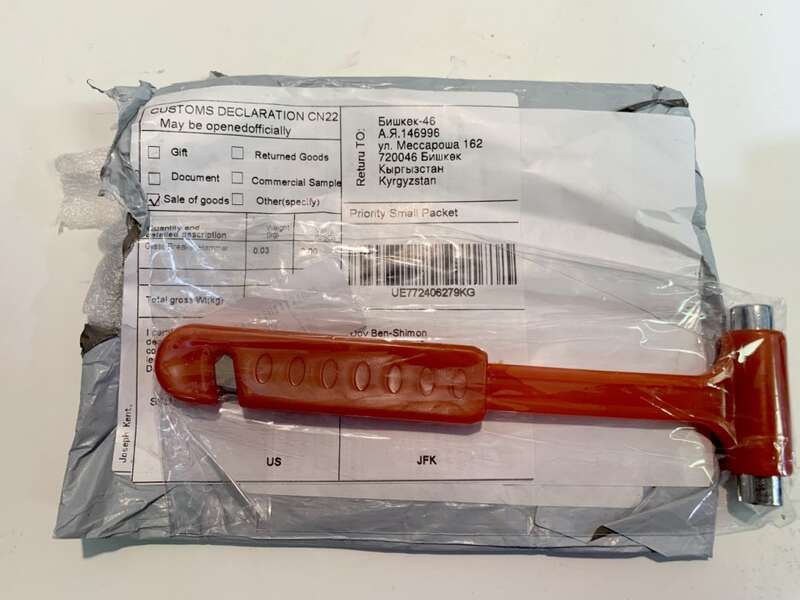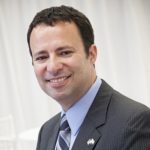
The other day I ordered a car windshield breaker on Amazon – a simple and handy tool that can break the glass in your car in an emergency. And when it arrived in the mail, I was curious, so I looked to see who sent it.
Look at the picture.
It came all the way from Kyrgyzstan.
A small, simple example of how interconnected trade, business, relationships, our lives all are. Even today, still in this pandemic. We are all interconnected.
And that has a whole layer of implications.
In 1958, the economist Leonard Read wrote that no one knows how to make a pencil. A simple pencil, he said, is really the sum product of a vast range of specialties that are, collectively, more complex than any single one of us can accomplish. The logger, the chemist, the metal worker, the paint-specialist, the graphite worker, the machinist, the engraver, and hundreds more specializations, are all part of this creation.
The pencil, he wrote, like every human invention, is a testimony to our amazing power of creative collaboration: “There isn’t a single person in all these millions, including the president of the pencil company, who contributes more than a tiny, infinitesimal bit of know-how. From the standpoint of know-how, the only difference between the miner of graphite in Ceylon and the logger in Oregon is in the type of know-how.”
You may have heard the story of the writer who spent more than a year researching and personally thanking each and every individual who contributed to his morning cup of coffee. If not, check out a fun synopsis here.
We rarely think about and feel gratitude for the mind-boggling collaboration that goes into every element of our daily lives – and the many people who contribute – but it impacts everything we do and everything we are. Especially for us, in our work in the Federation.
For a perfect example of this, read my colleague Ilyse Shainbrown’s account of the team effort that went into ensuring our Holocaust survivors all received COVID vaccines.
You’ve heard me say this before (I hope), that our work is counter cultural. In this world in which we’re continually bombarded with messages about loving things and using people, we’re saying something opposite: love people, use things.
Many of us will be sitting this weekend at the Seder table to recount the story of our liberation. To understand who we are, and why that matters. But for all of us, in our Federation family, the message of collaboration, of working together to achieve the common good – stands strong.
To stand up for those who need us, to support each other, to care.
Love people. Use things.
In the darkest of times this past year, since the last seder, I’ve been deeply humbled by our work together. By you.
I’m thankful that we have this mission. And I’m grateful for you.
Be safe this weekend. Chag Sameach to all those celebrating.
And from all of us, thank you.

